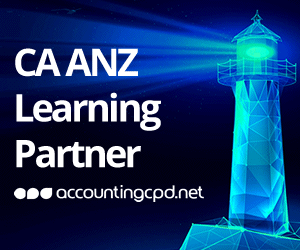How the CA Capability Model helps identify and strengthen skills for strategy and business performance
The CA Capability Model can help you to drive business strategy goals and address your future learning needs
In brief
- Following extensive research and broad consultation, the model is structured around four domains – Personal, Leadership, Business and Technical
- The model helps you to be intentional, flexible, innovative and responsive in the face of challenges – all critical attributes in delivering business strategy
- Informed by the model, CA Capability+ is a tool to help you assess your strengths and identify areas for improvement against your current or aspired role
The CA Capability Model was designed to target the future learning needs of the accounting profession, outlining the ideal skills, knowledge, personal attributes and experiences required at different stages of a professional accountants’ career.
Following extensive research and broad consultation, the model is structured around four domains – personal (mindset and personal abilities), leadership (people and purpose), business (business context), and technical (professional expertise).
As a strategic response to advancing technology and business processes worldwide, it aims to improve firms and individuals' ability to be intentional, innovative and responsive in the face of challenges – all critical attributes in delivering business strategy benefits.
There are six key capabilities included in the CA Capability Model that can help you to develop your business strategy and achieve its objectives:
1. Future Focus
Understanding the accounting services landscape is critical for accounting firms to identify future opportunities and threats to ensure sustainability of the business. Future focus involves a long-term view in all decision-making and actions, staying up to date with the regulatory changes and technology advancements, evolving client needs, analysing the target market and assessing the demand for various accounting services.
By constantly identifying areas for improvement, responding quickly, applying strategic thinking and investing in continuous learning and development, SMPs can remain competitive in a VUCA world.
2. Agility and Change
Successful accounting firms need to be adaptable to new trends, market conditions and technologies. By being agile and championing change SMPs can stay competitive and grow. This involves navigating through uncertainty and ambiguity, managing change related risk, responding quickly to change, staying on top of new regulations, adopting new technologies to streamline operations and continuously improving service offerings to meet the evolving client needs.
For leaders, effective change involves fostering and rewarding continuous improvement, building socially aware culture and encouraging team members to overcome resistance to change.
3. Leading Others
Leading an accounting firm involves strong leadership skills to influence, motivate, inspire, support, and guide your staff and other stakeholders toward achieving common goals. This involves building a strong team culture, growing your talent capability by investing in their development, providing ongoing constructive feedback and coaching to help team members maximise their potential and improve efficiency outcomes. Communication skills are also essential for better collaboration with team members and other stakeholders and can help foster a positive and productive team culture.
An important component of leading others is promoting inclusivity, championing collaboration and diversity, and looking after your employees’ wellbeing. By promoting inclusive leadership practices, SMPs can not only build trust and credibility and build a sustainable business, but also attract clients and employees who share the same values.
4. Customer focus
Understanding client needs, expectations and behaviours is critical for SMPs to tailor services that address clients’ specific needs, design effective marketing and sales strategies and build stronger relationships with the existing clients leading to better business outcomes.
Our research reveals that effective and clear communication with clients and other stakeholders is a top priority for SMPs. Communicating complex financial information in an understandable and concise way and listening actively to their clients’ needs can help accountants build trust and credibility, which are critical for sustainable client relationships. By prioritising customer focus, accounting firms can differentiate themselves as trusted advisors to their clients and build a strong reputation in the market.
5. Data Analysis
Analysing data for insights and patterns and measuring the effectiveness of business is crucial for making data driven decisions and optimising business performance. Data analysis can help SMPs manage their revenue and client retention by making more accurate financial forecasts and helping them achieve their strategic goals. By leveraging data analysis skills and tools, accounting firms can gain valuable insights into emerging market trends, measure client satisfaction and engagement, identify new opportunities for growth and drive effective growth strategies.
6. Innovation
Our research shows that innovation is critical for SMP strategy as it allows them to stay ahead, remain competitive in the changing market and rapidly deploy business solutions that deliver improvements to client experiences and needs. Innovation is also the key driver of business efficiency and allows SMPs to streamline and optimise their operations. By finding new ways to add value to client relationships and develop new services, accounting firms will be better positioned to retain and attract clients and grow a sustainable business.
CA Capability Model
Find out more about how the CA Capability Model outlines the future direction of the accounting profession.
Read moreBuilding these critical capabilities
CA Capability+ is a professional development planning tool designed to help identify and build the capabilities you need to stay relevant, succeed and prosper in the accounting profession, now and into the future.
Informed by the CA Capability Model, this self-assessment tool allows individuals to assess their strengths and weaknesses against their current or future role. It provides them with a personalised professional development plan targeted to address their capability gaps so that they can continue to grow in their current role or prepare for a higher role.

